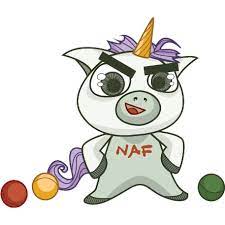Hi everyone, I’ve been busy filing taxes, so apologies for the lateness and ineloquence of this post (Also, I’m not sure why it won’t let me put captions under the image, but it’s an image of the ground with several rolled up dollar bills popping up out of it).
Last week, six influential philanthropic leaders released this joint statement about protecting pluralism and diverse perspectives in philanthropy. This letter has generated a lot of strong feelings among my colleagues. As half of these six co-authors are leaders I know and respect, I am offering my thoughts here, in line with the third principle proposed in the article, which is “When we challenge another’s views or activities, we focus on substantive arguments and invite response.” Thank you for creating this opportunity for dialog, and for accepting my perspective in the constructive spirit in which it is offered.
This letter is the philanthropic equivalent of “all lives matter.” In this case, its premise is that all philanthropy is equally valid and good: “philanthropy provides the greatest value when donors enable and encourage pluralism by supporting and investing in a wide and diverse range of values, missions, and interests.”
The problem is that philanthropy is not some sort of sport or brand of ice cream, where it doesn’t matter if you root for the Patriots or the Seahawks, or if you choose mint chocolate chip or rocky road. Philanthropy’s actions often mean life or death.
So no, not all philanthropy is good. There are donors and foundations that fund anti-trans hate groups, ones that back white supremacist movements, ones that support efforts to suppress votes, and ones that work to ban abortions and cause pain and death to millions of people. These donors and foundations cannot and should never be equally respected as donors and funders who are working to advance trans people’s rights and humanity, protect voting rights and access, fight white supremacy, and restore the rights to abortions.
To insist that all philanthropic values, missions, and activities are equally valid is at best naïve and at worst harmful to people and communities.
To support its erroneous premise, the article glosses over history, if not downright distorts it. “The history of philanthropy is a history of using private capital to supplement, not replace other approaches to investing in and supporting a prosperous and just society.”
Philanthropy’s roots are stained with inequity and injustice. So much wealth in this country has been built on a legacy of slavery, stolen Indigenous land, worker exploitation, environmental degradation, and tax avoidance. It is a history of white people and white-led corporations creating the very injustices that they then get lauded for giving fractions of the wealth they hoarded to solve.
And yes, it is a history of using private capital to replace other approaches to investing in and supporting a prosperous and just society. It is a history of wealthy people refusing to pay their fair of taxes and instead squirreling that money away into family foundations (and now also Donor-Advised Funds) to spend on their pet projects at their whims and leisure.
The authors assert that “philanthropy as a whole makes its greatest contribution to democracy when all foundations and donors engage in the unfettered pursuit of their own mission, interests, and prerogatives.”
The lack of acknowledgement of the problematic history of philanthropy is amplified by the lack of acknowledgement of racial and other dynamics. Philanthropy has always been the realm of wealthy white people. Most donors are white. Most foundation trustees are white. Most foundation CEO’s and staff are white. How can philanthropy contribute to democracy when it itself is so undemocratic? Nothing that is controlled almost entirely by wealthy white people should ever be “unfettered.”
The authors go on to suggest five key principles to protect philanthropic “pluralism.” I’ll respond to each of them here:
- We recognize and affirm the right and prerogative of foundations and philanthropists to take programmatic or public stances in accordance with their best judgment. And while it is appropriate for any donor to question or challenge another’s views, we should not question the underlying legitimacy of any foundation or philanthropist holding a particular view.
Again, your “best judgment” is still from the perspective of wealthy, extremely privileged white elites whose wealth have often been accumulated through inequitable means. This has caused all sorts of problems for years, exacerbating the issues we nonprofits are trying to solve. The existence of philanthropy itself is an indication of the proliferation of injustice, so we absolutely must question the underlying legitimacy of all foundations or philanthropists holding any sort of view at all, but in particular those who use their power and resources to advance inequity.
As our colleague Cathy García says, “Not only should we question the legitimacy of foundations or philanthropists whose views include neutrality in the face of white supremacy, we should interrogate why we want to hold on to the conditions that make egregious wealth inequality possible. There’s never been a MORE urgent time to question. Our people’s livelihoods and survival are not up for debate. Punto.”
- We behave as if the foundations and individual donors who take stances with which we disagree are also committed to the betterment of society. We assume that those involved in philanthropy have the best intentions, even if they take a different approach.
Really? Those foundations and donors using funds to advance hate groups, suppress votes among people of color, prevent work to reverse climate change, roll back rights for anyone who is not a rich white dude, these foundations and donors are committed to the betterment of society? They have the best intentions? Have we not had endless conversations about how intentions do not matter as much as impact? The intentions of rich mostly white people in power do not matter; it is the impact of their actions that has led to endless suffering for marginalized people and communities for hundreds of years, and if philanthropy has any self-awareness, it would work to rectify this.
- When we challenge another’s views or activities, we focus on substantive arguments and invite response. While disagreements may be profound — even fundamental — we believe that public debates should rely on reason and open conversation. We discourage practices such as personal or ad hominem attacks because we regard them as unhelpful to productively advancing knowledge within a pluralistic society.
I think most of us agree with this principle in theory. But people and communities most affected by systemic injustice are exhausted. We’re tired of our humanity and ability to exist being debated like some sort of academic exercise. We’re tired of the prioritizing of civility and comfort of the privileged over our safety and wellbeing. And we’re tired of this “bothsiding” that philanthropy often does, this belief that no matter how heinous, atrocious, and dehumanizing a perspective is, it should be respected for the sake of “diversity of perspectives.”
Read the full article here.









